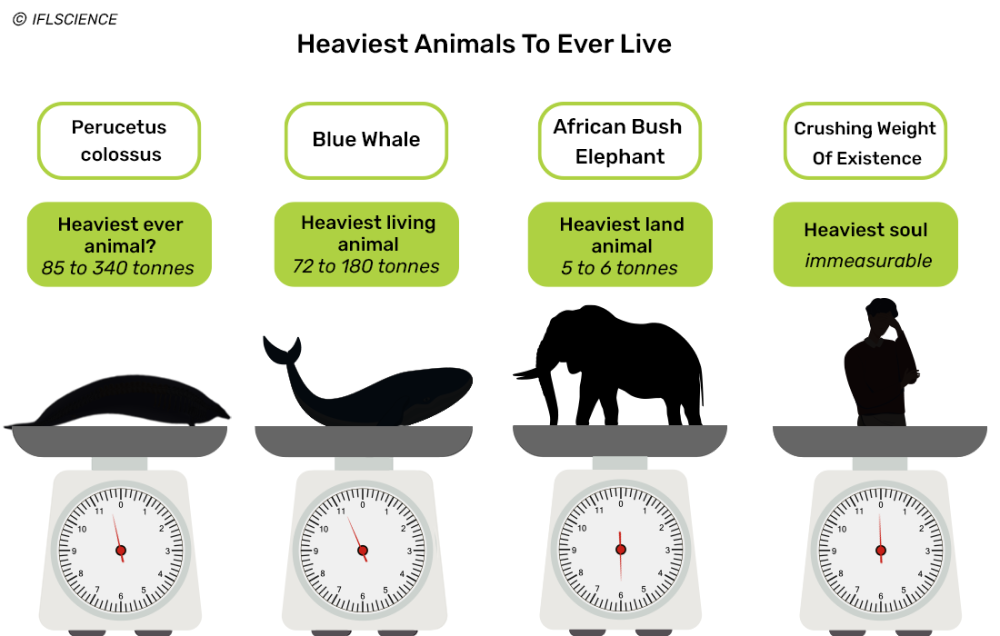Thirty-nine million years ago, a majestic sea potato for a whale was drifting along coastal habitats off Peru. Following the discovery of 13 vertebrae and a few ribs, researchers now estimate it may have been the heaviest animal ever to exist, topping even the gargantuan weight of living blue whales.
Gigantism became a big hit with mammals when they returned to the ocean, which is why we see so many absolute units among the cetaceans, a suborder of mammals that includes dolphins, whales, and porpoises. It seems a newly-described species took that adaptation one step further, becoming so vast that it’s estimated to have the greatest skeletal mass of any known sea creature or mammal.
The new species of whale that lived 39 million years ago has been named Perucetus colossus. Its name comes from its country of origin, Peru, the Latin for whale (cetus), and the Ancient Greek kolossós, meaning large statue – or in this case, flipping heavy whale.
As is often the case for enormous animals, for all its might, P. colossus didn’t survive terribly completely in the fossil record. Researchers working on the discovery were able to retrieve 13 vertebrae, four ribs, and one hip bone, from a site in Southern Peru. It might not sound like much, but it’s enough for them to predict that in life, P. colossus’s skeletal weight would’ve been two-to-three times that of extant blue whales’ skeletons.
Taking that whopping statistic into account, it’s likely that its total weight was between 85 and 340 tonnes. That either equals or far exceeds the weight of the blue whale, Balaenoptera musculus, meaning that our ancient whale scoops the crown for the heaviest animal ever to exist.
Here’s the IFLScience Whale Scale to put that into context.

There are a few contenders for the heaviest animal in the world.
Image Credit: Alberto Gennari and GoodStudio/MrVettore/Zhenyakot/BATKA/Shutterstock edited by IFLScience
While P. colossus is an unusual whale for having extremely thickened bones, the researchers don’t think they’re indicative of a pathological condition. This kind of bone mass increase is called pachyosteosclerosis, and while few whales have it to the extreme of P. colossus, it is seen in a few marine mammals including the sirenians (manatees and dugongs).
Its weighty bones mean it would’ve been limited to a shallow-water lifestyle, again like the sirenians, and gravity would’ve prevented it from returning to land to give birth. That means our heavyweight champion had fully transitioned into the aquatic lifestyle, and while working with an incomplete holotype makes guessing its swimming style tricky, the researchers reckon it most closely mirrored that of modern manatees.
Beyond blessing us with the largest sea potato known to drift along South America’s shores, the discovery extends the range of skeletal weights known for early whales and in turn, changes our understanding of how and when maximum body mass emerged among mammals. It was thought that life in the deep sea was necessary to achieve enormous mass, but if our assumptions surrounding P. collosus’s shallow water lifestyle are correct, this clearly wasn’t the case.
Fingers crossed for the discovery of a Titano-sea cow any day now.
The study is published in Nature.
Source Link: 39-Million-Year-Old Whale Is Chonky Contender For Heaviest Animal Ever